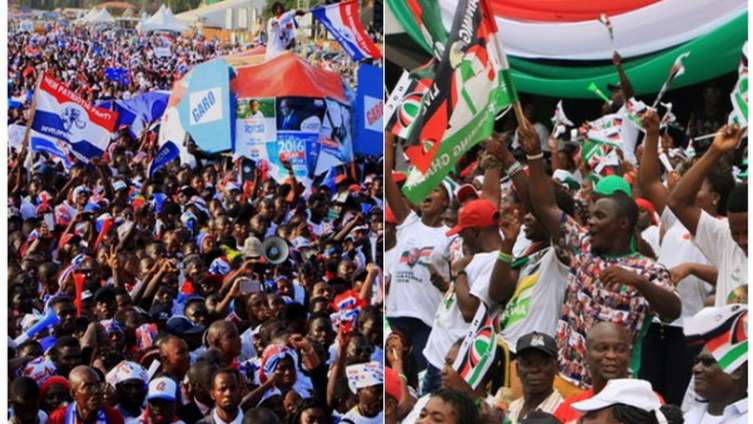Professor Kweku Azar Aare, a Fellow in Public Law and Justice at CDD-Ghana, has noted that it is a common phenomenon for supporters and allies to defend politicians by justifying or downplaying behavior that’s clearly unethical, unreasonable, or even illegal.
Prof. Asare indicated that this tendency to rationalize or excuse wrongdoing can be particularly problematic in the realm of politics, where accountability and transparency are essential.
However, Prof. Asare warned that such defenses can ultimately prove counterproductive, causing more damage to the politician’s reputation and interests in the long run, even if the intention is to shield them from criticism.
He asserted that by rationalizing or excusing wrongdoing, supporters may inadvertently perpetuate harm rather than mitigate it.
“First, when a politician’s wrongdoing is excused or justified, it erodes public trust. Most non-fanatics tend to value honesty and integrity, and when those in power—or their supporters—attempt to cover up or downplay misdeeds, it deepens suspicion and alienates such voters”.
Professor Stephen Kweku Aare
According to Prof. Asare, justifying a politician’s wrongdoing may offer temporary protection from consequences, but it can ultimately lead to more severe repercussions.
These, he noted, can include investigations, scandals, or even electoral defeat, which can have far-reaching and devastating effects on the politician’s career and legacy.
Prof. Asare emphasized that defending a politician’s wrongdoing can perpetuate a damaging narrative of corruption, which can persist even if the politician manages to maintain their position in the short term.
According to the CDD fellow, this persistent narrative of corruption can have a corrosive effect, gradually wearing away public confidence and eroding the politician’s credibility, ultimately threatening their ability to effectively lead and govern.
Prof. Asare indicated that defending unethical behavior by politicians undermines the moral and ethical foundations of public office, compromising the integrity and trust that is essential for effective leadership and good governance.
Defending the Indefensible
Prof. Kweku Azar Asare warned that defending politicians’ unethical behavior can create a culture of impunity, emboldening them to continue engaging in misconduct.

Prof. Asare indicated that by justifying bad actions, politicians and their supporters may feel empowered to repeat such behavior, assuming they can avoid accountability and serious consequences.
He emphasized that this cycle of defending unethical behavior creates a vicious downward spiral, perpetuating a culture of bad governance and further eroding the foundations of accountability and transparency.
The CDD Fellow noted that this entrenched culture can become increasingly difficult to reverse, leading to a prolonged period of poor leadership and governance.
“Fourth, in most cases, attempts to justify or cover up wrongdoing can draw more attention to the issue, causing the scandal to grow. What might have been a minor offense escalates into a much larger controversy due to the way it is handled”.
“The Adjeiwaa paradox is a heartbreaking contradiction: the desire to help ultimately causes more harm”.
Professor Stephen Kweku Aare
Prof. Asare astutely observed that defending a politician’s unethical behavior often blurs the line between loyalty and enablement, highlighting the delicate balance between supporting a leader and perpetuating harmful actions.
This blurred line can lead to a troubling dynamic where loyalty is prioritized over accountability, ultimately facilitating further wrongdoing.
According to Prof. Asare, genuine support for a politician involves holding them to higher standards of integrity and accountability, which ultimately benefits the individual leader by fostering trust and credibility.
He maintained that this approach also strengthens the political system as a whole, promoting a culture of transparency, ethics, and responsible governance.
Prof. Asare concluded that blind loyalty ultimately proves to be a double-edged sword, not only corroding the political system but also inevitably leading to the downfall of the very leaders it aims to shield.
He noted that by prioritizing loyalty over accountability, supporters inadvertently create a toxic dynamic that undermines the leader’s legitimacy and sets them up for a potentially catastrophic fall.
READ ALSO: Omotola Jalade Reveals Her Name is Trademarked Following Fan’s Comment




















